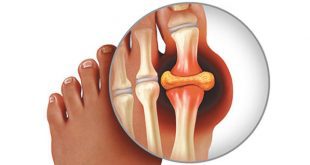

This is especially prevalent in the US and the western hemisphere. According to the American Heart Association, there are an estimated 13 million Americans that have coronary artery disease, also known as CAD. Almost 7 million of these have experienced active chest pain and nearly 8 million Americans that have had a myocardial infarction (heart attack).
Based on the data from the Framingham study (an ongoing study performed in Framingham Massachusetts since 1948) the risk of developing symptomatic chest pain or heart attacks after age 40 is 49% for men and 32% for women. In 2001 alone, CAD accounted for 54% of all deaths due to cardiovascular disease and was the single most frequent cause of death in American men and women.
The Framingham study identified the main risk factors causing heart attacks and chest pain as:
. Hypertension
. High Cholesterol
. Smoking
. Obesity
. Diabetes
. Physical inactivity
The classic symptom of CAD is chest pain. The discomfort felt in the chest may also radiate to the neck, jaw, shoulders, or arms and hands, especially on the left side. Some patients have characterized the pressure-like sensation as feeling like a large object is on top of their chest or more like a squeezing sensation that may last 2 to 3 minutes or more. This can translate into a heart attack when lasting 20 minutes or more.
This tightness can also be associated with shortness of breath, palpitations (chest fluttering), dizziness, profuse cold sweats, anxiety, nausea, vomiting and sometimes loss of consciousness. Women more commonly experience fatigue, sleep disturbance or shortness of breath. These symptoms are usually relieved by resting or stopping the physical activity that was being performed.
If necessary, the pain can often be alleviated with Nitroglycerine. This can be taken as a small pill or a spray beneath the tongue where it rapidly reaches the body’s venous circulation and in seconds will reach the arteries of the heart.
Anyone experiencing these symptoms should immediately chew an Aspirin (ideally a 325 mg tablet) or 4 Baby Aspirins. If you have Nitroglycerin, you can take one pill or spray every 5 minutes (not to exceed more than 3 times). If the chest pain is still present, you should immediately call 911 or go to the nearest ER facility. If the pill or spray reduces the pain you should call your physician to notify them.
Your physician will most likely recommend you come in for an office visit to evaluate the next step in your medical care. This will enable your physician to determine if the appropriate treatment should be a conservative one, an invasive one, or a combination of both.
An EKG, blood tests to measure the cardiac enzymes, and other tests such as an echocardiogram, a nuclear scanning test, or a stress echocardiogram are some of the different modalities that will help to make the proper diagnosis. Once the diagnosis is made an Interventional Cardiologist can perform a cardiac catheterization and re-establish the proper amount of flow into the heart arteries.
Anyone with the risk factors mentioned above should take the initiative to make the proper lifestyle changes in order to control them and diminish the risk of having a heart attack. Working closely with your physician is key for controlling these risk factors.
Remember that for every pound of extra weight, the heart has to pump to 3 more miles of capillaries. So if you are 20 pounds overweight, your heart must pump to an additional 60 miles of capillaries. It’s no wonder that the blood pressure needs to increase to maintain the demand.
Think about your family and yourself as the main motivation to achieve your cardiovascular goals. Try to step out of your comfort zone once in a while and don’t become a couch potato.
I hope this month you think seriously about your cardiovascular risks and do something to improve them. Your primary care physician, and if needed your cardiologist, will help you achieve and maintain good heart health keeping you away from the emergency room and hospitals.
Tips to reduce your risks for developing cardiovascular disease are:
. Maintaining a blood pressure between 130/85 and 120/80
. Keeping your cholesterol in check. Ideally you should keep your LDL (bad cholesterol) less than 100 and the HDL (good cholesterol) greater than 40. You should also keep your Triglycerides below 180.
. Do not smoke, or stop smoking as soon as possible.
. Keep your Body Mass Index or BMI less than 27.
. Cardiovascular exercise not less than 20-30 minutes a day.
. Try not to eat while watching TV.
. Increase the amount of fruits, vegetables and white meat in your diet.
. Shield yourself from unnecessary stress and learn how to manage it.
. Surround yourself with positive people.
(941) 629-4500
4130 Tamiami Trail, Suite 201
Port Charlotte, FL 33952
 Southwest Florida's Health and Wellness Magazine Health and Wellness Articles
Southwest Florida's Health and Wellness Magazine Health and Wellness Articles

